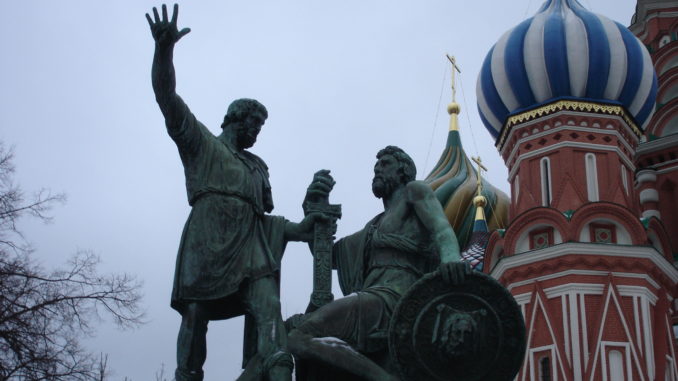
In La Tribune 01/03/2022
The sanctions against the invasion of Ukraine that hit the Russian economy affect natural resources: steel (Russia is the second largest exporter of steel to Europe, behind Turkey but ahead of Ukraine and its steel mills in the Donbass …), nickel, palladium, platinum, rhodium and others PGM’s, aluminum, titanium, magnesium, zinc, gas, oil, fertilizer, wheat, etc..
This blockus affects us. Our logistics will be less well oiled and we are already experiencing inflation in the prices of these raw materials. But a rebalancing is underway, they will no longer be directed towards the West, but will be redirected towards the East with China as the first beneficiary. Nevertheless, these sanctions will weaken Russia, without making it disappear.
Here, it is another actor who will be at work.
Slavic General de Gaulle
Writing this, 48 hours after the start of the Russian military’s invasion of Ukraine and having worked for several years at Russia’s world-class mining leader, Norilsk Nickel, here are some facts.
This invasion was not at all in line with the ideas of the Russian managers I worked with. They considered the Vladimir Putin of his first terms in office in the 2000s as a kind of Slavic General de Gaulle because he had restored pride to the country, rebuilt its finances, reorganized its industry, revived economic growth and given the Russians back their dignity after the collapse of the USSR and the Yeltsin episode.
The vertical of power
But, like the Russian youth, who only knew the Putin era, this elite of the private sector has gradually divorced from the Kremlin and its domestic policy summarized in 2007 by the economic “vertical power” around natural resources and the moral “vertical power” around devotion.
They have detached themselves from their leaders and the head of state, a man who does not like surprises, but who likes to surprise.
Ukraine an inner Slavic drama
They consider the invasion of Ukraine, which will never bring the more than 40 million Ukrainians into line, a danger and an internal Slavic drama as important as a risk for Europe.
For them, who were not necessarily in favor of NATO’s advances, Kiev had all the advantages of a Slavic, free and European capital. It was seen as a potential cultural safe haven, because it was the historical heart of the Slavic nation, the center of Russian history and the Russian language was spoken there.
This internal drama will last until the government of Vladimir Putin is overthrown by the Russians themselves. There are already some in the corridors of power and security services who could replace him advantageously.
In the short term, the intensity of the Ukrainian resistance means that Russia has already lost the “liberating invasion” of Ukraine. No one expects it to win a destructive invasion.
In the longer term, after the revolution of 1917, thirty years after the break-up of the USSR, the battle of Kiev will have the unexpected effect of provoking a third implosion of the Russian house.
Its territory and natural resources will be heading towards a new collapse and fragmentation between its western and eastern neighbors, unless…